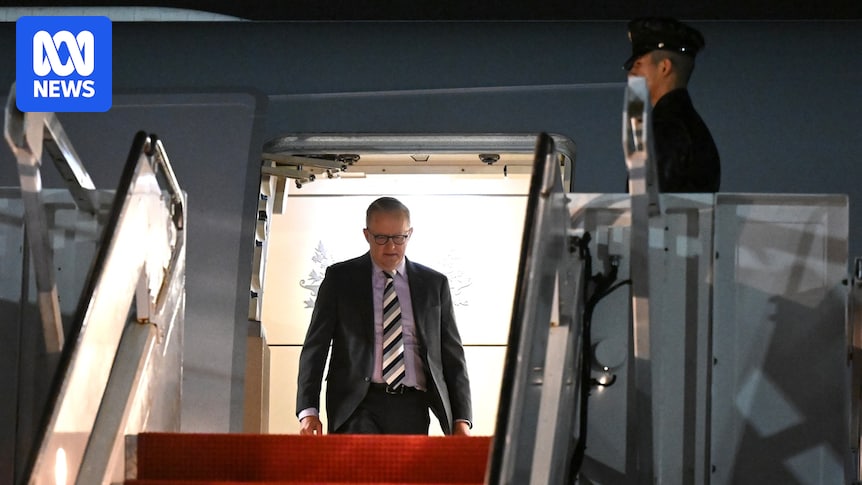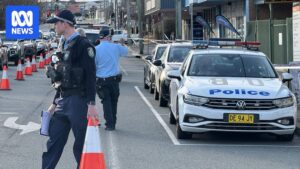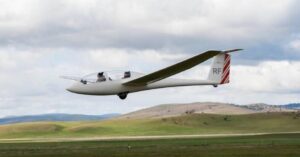
Prime Minister Anthony Albanese is embarking on a significant diplomatic mission to Malaysia, marking the beginning of a week-long international tour focused on enhancing security and trade ties in the Asia-Pacific region. Albanese will participate in the Association of Southeast Asian Nations (ASEAN) summit and the East Asia Summit in Kuala Lumpur before heading to South Korea for the Asia-Pacific Economic Cooperation (APEC) summit.
Speaking before his departure, Albanese emphasized the importance of these summits in addressing economic growth, security, and regional stability. “These forums come at a critical time,” he stated. “I look forward to engaging with our partners on trade, security, and global challenges.”
Meanwhile, U.S. President Donald Trump is conducting his own tour across Asia, with Malaysia as a key stop. Trump plans to meet with Malaysian Prime Minister Anwar Ibrahim, oversee a peace agreement between Cambodia and Thailand, and attend the ASEAN leaders’ dinner. His itinerary also includes a visit to Tokyo to meet Japan’s new Prime Minister Sanae Takaichi, culminating in a high-stakes meeting with Chinese leader Xi Jinping in South Korea amidst escalating trade tensions.
Strategic Diplomacy Amidst Trade Tensions
President Trump’s visit to Malaysia follows his administration’s earlier decision to impose high tariffs on Southeast Asian nations. The visit is seen as an opportunity to initiate discussions on reducing trade barriers. Prime Minister Anwar expressed hope that Malaysia could facilitate trade talks between the U.S. and China. “If there is some sort of progress or achievement [between China and the US] …I would be very happy and I think Malaysians would be proud,” he remarked.
Susannah Patton, Deputy Research Director and Program Director for Southeast Asia at the Lowy Institute, noted the rarity of a U.S. President attending the ASEAN summit, highlighting the excitement it brings to the region. “They want to establish a relationship with him [Donald Trump] in much the same way as our Prime Minister going to Washington wanted to use it as a way of putting the relationship on a firm footing,” she explained.
Strengthening Business and Trade Relationships
The Albanese government is also keen on diversifying Australia’s business ties beyond China and the U.S. In 2022, businessman Nicholas Moore was commissioned to explore ways to enhance ties with ASEAN nations through business, cultural, and educational initiatives. Moore’s report identified “significant opportunities to boost [Australia’s] trade relationship” with ASEAN countries, which he will further discuss during the summits.
Associate Professor Ross Tapsell from the Australian National University highlighted ongoing challenges in Australia’s relationship with ASEAN. “Our trade relationship with ASEAN remains underdone,” he noted, pointing out issues such as cuts in Southeast Asian language and exchange programs. “To put it in housing terms, the letterbox and front porch look nice and shiny, but inside the house is starting to fall apart.”
Prime Minister Albanese reiterated the importance of these summits in expanding trade options. “One in four Australian jobs rely on trade, and we will be focused on continuing to grow our key economic and trade relationships during ASEAN and APEC,” he said.
Balancing Global Powers
Leaders of Southeast Asian countries have long advocated for maintaining balanced relationships with both the United States and China. Last year, Malaysia’s Prime Minister Anwar Ibrahim emphasized the importance of friendly ties with China, stating, “[Western countries] should not preclude us from being friendly to one of our important neighbours, precisely China.”
Associate Professor Tapsell noted a shift in regional sentiment, with some Southeast Asian countries showing declining favorable perceptions towards the U.S. since Trump’s re-election and tariff impositions, while views of China and Russia have improved. From Australia’s perspective, concerns about China’s military strength and its growing presence in the South China Sea persist.
Susannah Patton stressed the necessity for the U.S. and other Western nations to maintain an active presence in the region to prevent an over-reliance on China. “That is why they [Southeast Asian nations] are so keen to have the US President there,” she explained. “Australia’s priority should be about partnership and providing them with options.”





